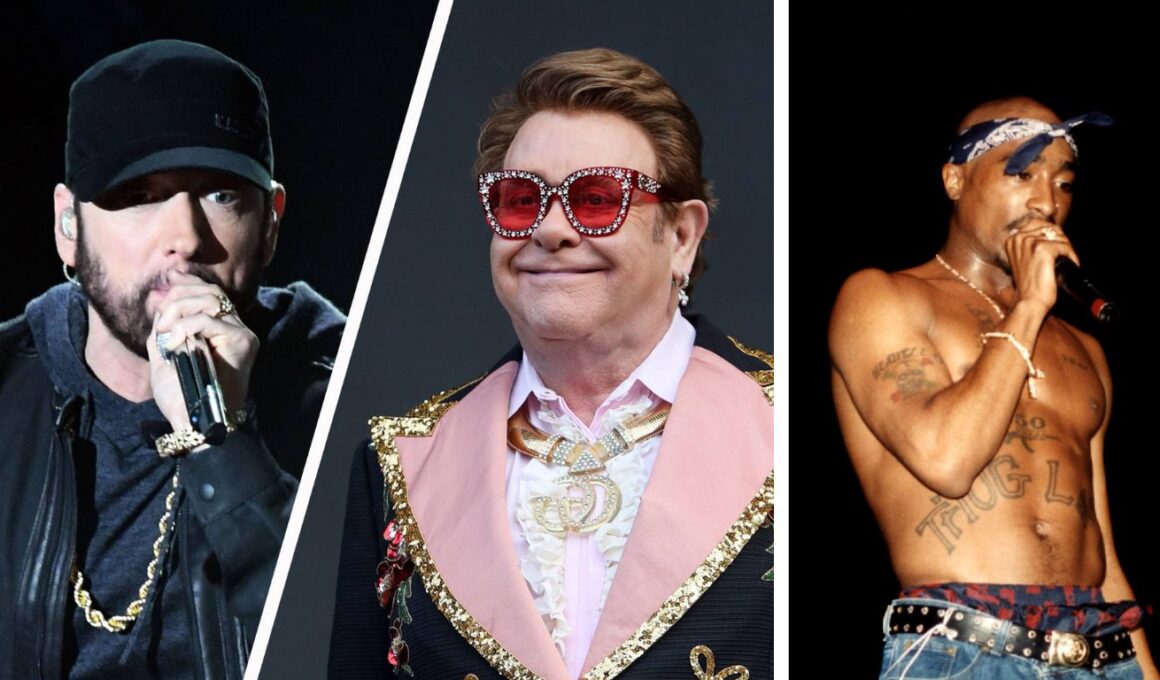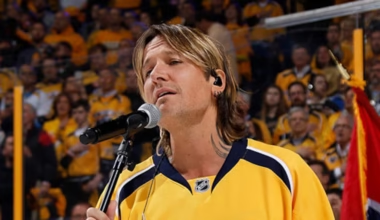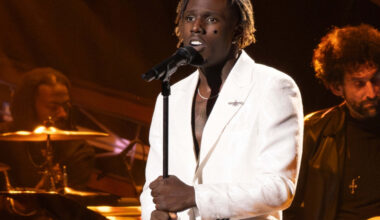The unexpected fusion of Tupac and Elton John in “Ghetto Gospel” created a legendary moment in music history—one that left Elton calling Eminem’s production “genius” and Eminem himself feeling like “a kid in a candy store.”
Elton John’s Unexpected Connection to Tupac
While Elton John has collaborated with countless icons, one of his most cherished moments came when Eminem sampled his song “Indian Sunset” for Tupac’s “Ghetto Gospel.”
In an interview with BBC Radio 6 Music, Elton reflected on how much it meant to him:
“Eminem produced the Tupac record, and he had a sample of ‘Indian Sunset’ on it for ‘Ghetto Gospel.’ It is one of my proudest moments. I thought, ‘Oh my God, I can die and go to heaven.’”
Originally released in 1971 on Madman Across the Water, “Indian Sunset” wasn’t a widely known hit. However, in 2004, Eminem reworked the track for Tupac’s posthumous album Loyal to the Game, bringing Elton’s dramatic instrumentation into a modern hip-hop classic.
Eminem’s Dream of Working with Tupac
Eminem’s production on “Ghetto Gospel” replaced the original Tracy Chapman sample and layered Tupac’s powerful verses over Elton’s orchestral melodies. The song became a poignant social commentary, referencing Malcolm X and Bobby Hutton while shedding light on the struggles of Black activists.
Elton was blown away by the result, telling Daily Express:
“How he’s managed to meld that with Tupac, I’ll never know. It’s just genius.”
For Eminem, working on a Tupac record—posthumously or not—was a surreal experience. He later admitted:
“You wouldn’t be able to tell the 18/19-year-old Marshall that he would ever be able to get his hands on some Tupac vocals and have that opportunity. It was such a significant piece of history for me and so much fun. I’m like a kid in a candy store; going nuts with the fact that I’m putting beats under his rhymes.”
A Chart-Topping Success—Everywhere Except the U.S.
The collaboration paid off, with “Ghetto Gospel” topping the charts in the UK, Australia, Ireland, and multiple other countries. Strangely, the U.S. was one of the only major markets where it didn’t hit No. 1.
Regardless, the song remains an iconic moment in the legacies of Tupac, Eminem, and Elton John—a fusion of hip-hop and classic rock that no one saw coming.






